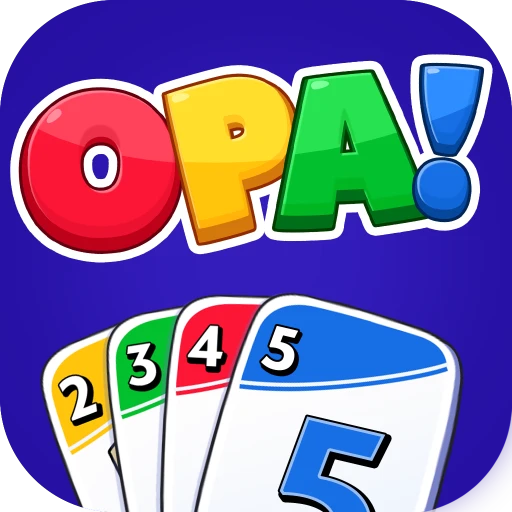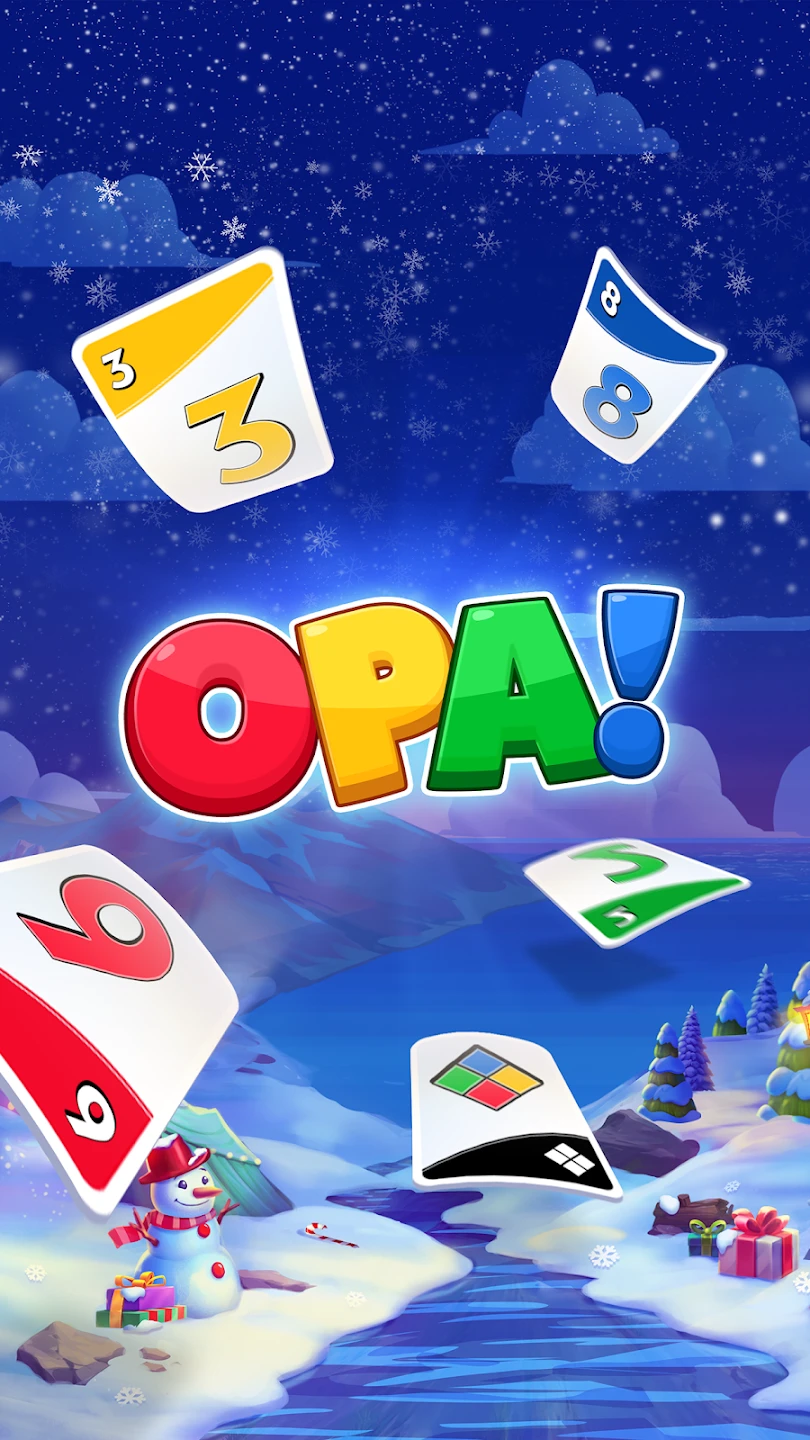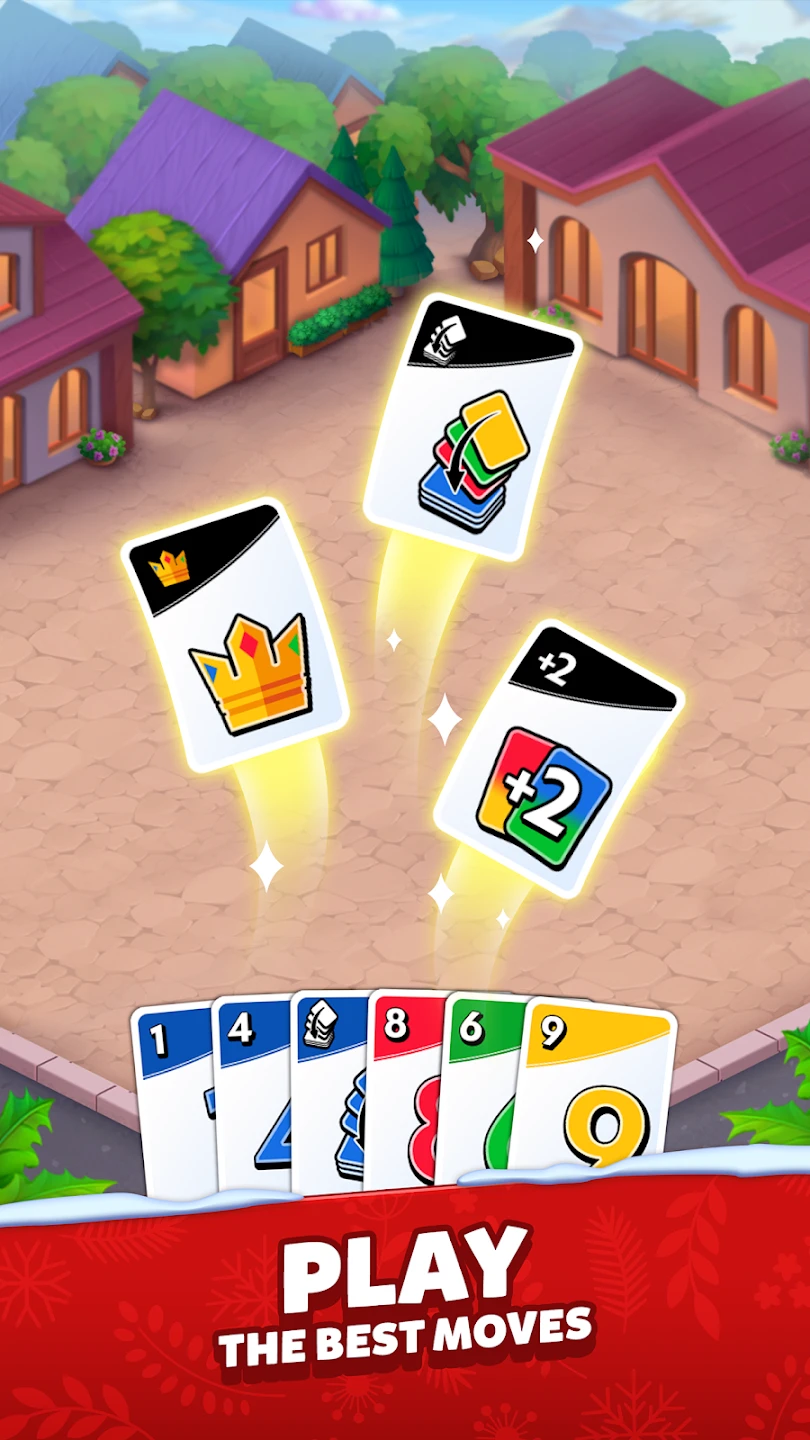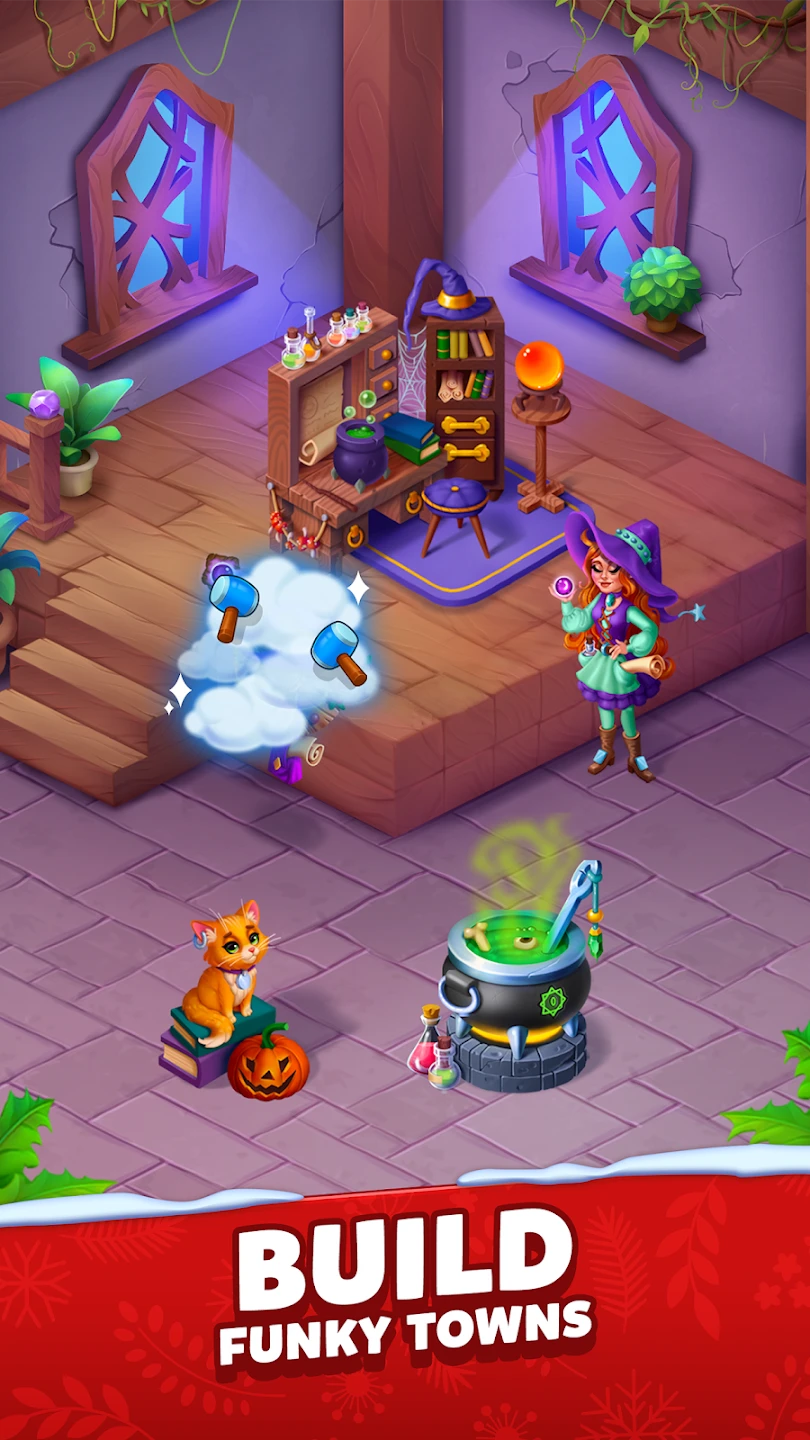 |
|
| Rating: 4.9 | Downloads: 1,000,000+ |
| Category: Card | Offer by: Beach Bum Ltd. |
OPA! – Family Card Game is a delightful social card game designed for players of all ages. Belonging to the party game genre, it emphasizes bluffing, bidding, and bluffing, making it a fast-paced and engaging experience. The game’s charm lies in its simple rules combined with complex strategic elements, ensuring fun for families or small groups.
The appeal of OPA! comes from its blend of luck, deception, and high-stakes moments. Players experience the thrill of outsmarting opponents, the tension of misdirection, and the satisfaction of a successful bluff or a clever underbid. OPA! – Family Card Game offers a light-hearted way to socialize and connect.
Gameplay and Features
- [Core Gameplay Loop]: OPA! involves players competing to be the first to reach a target score (often 20 points). In each round, players place chips on a central board corresponding to a point amount they believe they can score with their hand. The player with the highest bid then reveals their hand; if they win their bid, they score points, otherwise, they lose the chips they placed. The game continues until someone reaches the target score. Players interact by trying to outbid each other and bluffing to mislead opponents about the strength of their hand.
- [Visuals or Art Style]: OPA! features clean, minimalist graphics with vibrant card colors and simple, distinct character designs for players or cards. The board layout is clear and user-friendly. The overall design aims for a friendly, accessible, and slightly whimsical feel suitable for its family-oriented target audience.
- [Modes or Levels]: OPA! typically supports 2 to 6 players. The game itself doesn’t have distinct levels in the traditional sense but focuses heavily on replayability through different player counts and potentially different scoring rules (e.g., highest bidder wins points, or the player closest to but not over the bid wins points, depending on house rules or variant). This simple structure encourages many rounds, promoting social interaction and repeated play.
- [Controls or Interface]: Control is straightforward, involving placing bids (placing chips) during the round setup phase. Player turns might involve drawing cards or revealing their bid. The user interface should be intuitive, clearly showing the current scores, the central bidding board, and each player’s hand. Ease of control is ensured by simple turn structures and a clean layout.
- [Customization or Power-ups]: While the base game might offer limited customization beyond player count, some versions might include minor elements like card back designs or player avatars. Progression is primarily through skill and experience from multiple plays rather than power-ups. Motivations for ongoing play stem from improving strategic skills, mastering the art of bluffing, and enjoying competitive fun with friends and family.
- [Any Special Systems]: OPA! often includes systems like the ‘Pass’ option, allowing players to skip their turn if they are uncomfortable with the current highest bid. Some variations introduce special cards or rules, adding complexity. The core appeal is the bluffing aspect and the social dynamics of competing in small groups.
How to Play
Beginner’s Guide:
- Step 1: Deal a specific number of cards (e.g., 5 or 6) to each player. Determine who starts first, usually by drawing the highest card. The target score (e.g., 20 points) is set before the game begins.
- Step 2: Starting clockwise from the dealer, each player places chips (from a pool or their own supply) onto the board to indicate how many of a specific color they believe they hold. The amount must match the current highest bid.
- Step 3: Once everyone has bid, the top bid is revealed. The player who placed that bid shows their hand to everyone. If they have at least that many cards of the color bid, they score points equal to the bid; otherwise, they lose the chips. The game repeats until someone reaches the target score.
Pro Tips:
- Analyze opponents’ bidding patterns carefully; consistently high or low bids can indicate bluffing or confidence.
- Pay close attention to the distribution of cards revealed by others to make more informed bids yourself.
- If the bid seems too high, even for you, consider passing to avoid losing too many chips or potentially exposing a weak hand.
Similar Games
| Game Title | Why It’s Similar |
|---|---|
| Crazy Eights |
Shares the party game genre and simple, accessible rules. Known for its fast-paced trick-taking and bluffing potential in a competitive setting. |
| UNO |
Appeals to a similar audience for casual and strategic gameplay. Offers color-based bidding and matching similar concepts to OPA’s card counting aspect, often with social play features. |
| Mau-Mau / Speed |
Popular among fans of “OPA! – Family Card Game”. Has comparable fast-paced gameplay focused on discarding cards and often involves elements of bluffing and competition. |
Frequently Asked Questions
Q: How many players can join “OPA! – Family Card Game”?
A: OPA! is designed for a small group experience, typically accommodating 2 to 6 players, making it ideal for families or friends gathered around a table.
Q: Is luck or skill more important in OPA!?
A: While luck plays a role in card distribution, skill becomes very important through strategic bidding and reading opponents. A successful bluff or a calculated underbid often relies heavily on skill and observation.
Q: Are there official expansions for OPA!?
A: Expansion packs for “OPA! – Family Card Game” do exist, potentially introducing new card designs, special rules, or scoring variations to further enhance the gameplay experience and replayability. Check the publisher’s website for specific releases.
Q: Can OPA! be played online with others via platforms like Steam or board game apps?
A: This can vary; check the platform availability and the current support for online play. Many board games have seen official digital versions released on various platforms.
Q: What happens if someone doesn’t have enough chips to make a bid? Does the game skip that round?
A: If you don’t have enough chips, you can either “pass” your turn (if the game rules allow it) or use the chips you have. Usually, you place your maximum possible bid based on your chip count, potentially lowering the total bid or the amount you risk for that specific bid.
Screenshots
 |
 |
 |
 |
